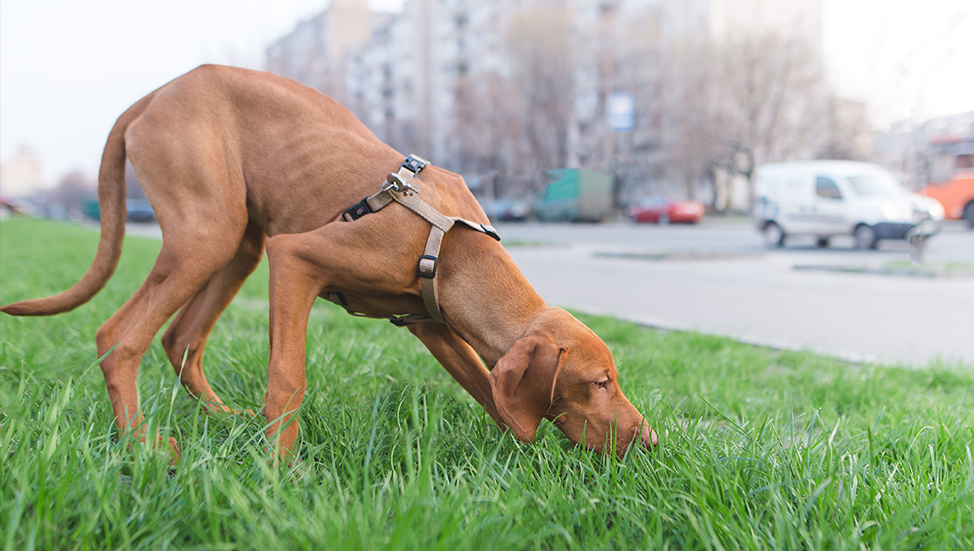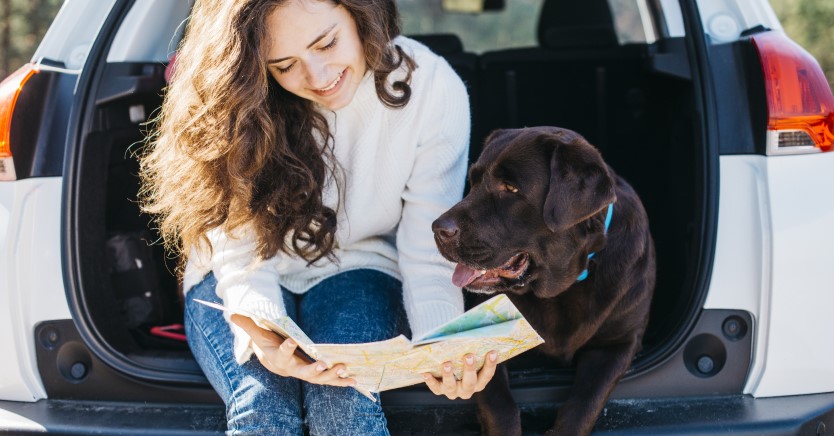Ask Dr. Jenn: How can I stop my dog from eating poop?
Coprophagy, eating feces, can be a hard habit to break in dogs, but it's not impossible. Here's what you can do.

Q: Why does my dog eat poop? Is there something missing from his diet?
A: It is baffling to most people why their sweet precious pup would stoop to the level of eating his own poop, especially when he is well fed and given an abundance of treats. Even more baffling is why they will eat other dogs’ poop or why they think the cat’s litterbox is their own personal candy dish.
Coprophagy is the medical term for eating feces, or poop. Coprophagy occurs in all ages of dogs, although it is more common in puppies. Many, but not all dogs, will outgrow it within the first few years of life. It used to be thought that poor nutrition played a roll, that the dog was not able to digest his food properly or not getting enough of a nutrient from the diet so he ate his stool. There has been no scientific evidence to support this theory and coprophagy has been seen in dogs on a variety of diets.
Although the cause of coprophagy is not known, it is thought to be an instinct handed down from their ancestors, the wolves. It is thought that wolves eat their feces to keep their dens clean and reduce scents that may lure predators to their pups. Another theory is that puppies eat feces at a young age to introduce bacteria into their gastrointestinal tract. For other dogs, it is thought that maybe they just like the taste.
Regardless of the reason why your dog eats poop, it is not just a gross habit, it is also an unhealthy one. Most intestinal parasites found in the dog, including roundworms, hookworms, and whipworms, have a fecal-to-oral spread lifecycle: adult worms living in the intestinal tract of the host dog lay eggs that are passed out through the feces. The eggs are ingested when the feces is ingested (or sometimes even just sniffed) and a new host is infected. Dogs that eat their own feces can continually re-infect themselves making it harder to clear the parasites from their GI tract. If your dog is a poop eater, fecal checks for parasites and regular deworming is strongly advised. People are also at risk for getting hookworms and roundworms from their pets. If your dog partakes in coprophagy, do not let him lick you in the face and wash your hands well after playing with him to limit the risk of microscopic eggs from your dog to you.
Coprophagy can be a hard habit to break. If your dog only eats his own feces and/or the feces of other pets in the household, commercially available products may help. I commonly recommend Forbid, a powder that is mixed in with the food, but your veterinarian may have a different product they recommend. The product is ingested and passed through the gastrointestinal tract making the feces unpleasant to the dog. Using Forbid daily for a week or two may be enough to break the coprophagy habit. However, not every dog is deterred by these products. Other dogs will be deterred for a while, but once the product is discontinued they will go back to eating feces.
If your dog is not deterred by these products or is eating feces from other animals, avoidance is the best treatment. Clean out litterboxes regularly, get a self-cleaning litterbox, or place the litterbox in a place where the dog cannot access it. Walk your dog on a leash so that you can pick up the stool immediately. Avoid dog parks where there is likely to be fresh piles to tempt him. Some people have been successful at teaching their dog the “leave it” command. If their dog finds fresh feces and is obedient, the dog will follow the command and leave the feces alone in exchange for either high praise or a delicious treat.
Coprophagy is not a pleasant habit and unfortunately it cannot be fixed with a simple diet change. Breaking the habit requires a lot of attentiveness by you to your pet’s bathroom habits, controlling the environment to limit access to feces, and time until he (hopefully) outgrows it. Regular fecal checks and deworming by your veterinarian are also important to keep your pet and your family members healthy.
Give your furry friend a pet for me,
Dr. Jenn
Ready to start saving money on pet wellness care?
Then take a look at Mint Wellness, the pet wellness plan that provides fast reimbursement on routine pet care. Save on vaccinations, wellness exams, preventatives, dental, and more!
Learn More


